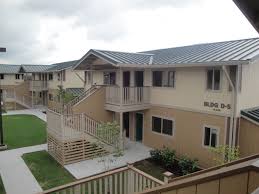Transitional housing is a temporary accommodation that bridges the gap between emergency shelters and permanent, independent living. It provides a structured and supportive environment for individuals and families facing homelessness or instability. Here is more information on transitional housing and its benefits:
Provides Temporary Housing
Transitional housing programs offer a safe, stable place to live for a defined period. These programs are not permanent housing solutions; instead, they provide a pathway for individuals and families to secure their own housing in the future. Participants typically reside in apartment-style units or shared living spaces while they work on personal goals.
Residents may be expected to follow program rules and policies. This structure helps build skills for managing a household and personal finances, which are needed for independent living. Programs vary in length, but they are designed to give residents enough time to address the underlying issues that led to their housing instability.
These housing programs connect residents to local resources. Participants live in a supportive setting, and they work toward securing stable employment and permanent housing. Because they integrate these programs into the community, they facilitate access to jobs, schools, and other necessary services.
Offers Supportive Services
A defining feature of transitional housing is the integration of supportive services alongside accommodation. They design these services to meet the individual needs of residents, helping them build the skills and resources required for long-term stability. The goal is to address the root causes of homelessness, not just the immediate need for shelter. Many programs provide access to sober living environments.
These programs may incorporate life skills training to prepare residents for independent living. This training might include:
- Financial literacy workshops
- Parenting classes
Participants receive comprehensive support designed to empower them on their journey toward self-sufficiency. They deliver these services within a structured environment and monitor progress to help residents stay on track.
Helps Domestic Violence Survivors
Many housing programs are specifically designed for survivors of domestic violence, offering a safe haven after they leave an abusive situation. These programs offer a safe, confidential space where survivors and children can start healing without danger. Safety planning and trauma-informed care are central components, so survivors have the tools to rebuild their lives.
Provides Case Management
Case management is a core component of the transitional housing model. Upon entering a program, each resident is assigned a case manager who works with them to develop an individualized service plan. Case managers provide guidance and support, and they help residents navigate complex social service systems.
Regular meetings with a case manager help residents track their progress and make adjustments to their plans as needed. The case manager acts as a central point of contact, coordinating services with other agencies and advocating on the resident’s behalf. This personalized support helps residents overcome obstacles and stay focused on achieving self-sufficiency, because they have a dedicated professional assisting them.
Find Transitional Housing Services Today
Transitional housing provides a solid path from homelessness to stable, independent living through a combination of temporary housing and supportive services. Through case management, residents receive personalized support to address their specific needs and goals. If you or someone you know is in need of these services, contact a local housing authority or social service agency to find transitional housing programs in your area.

